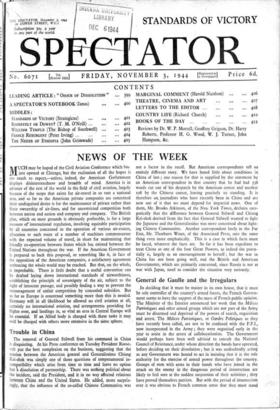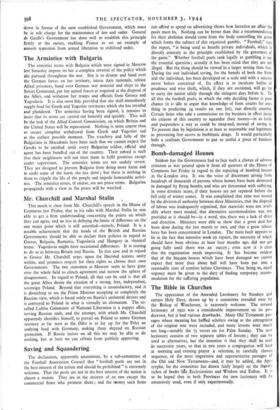General de Gaulle and.the Irregulars
In deciding that it must be master in its own house, that it must be sole controller of the country's armed forces, the French Govern- ment seems to have the support of the mass of French public opinion. The Minister of the Interior announced last week that the Milices Patriotiques and other armed groups which are not part of the Army must be disarmed and deprived of the powers of search, requisition and arrest. The Milices Patriotiques, or Gardes Politiques as they have recently been called, are not to be confused with the F.F.I., now incorporated in the Army ; they were organised early in the year to assist in the arrest of collaborationists. The Government would perhaps have been well advised to consult the National Council of Resistance, under whose direction the bands have operated, before deciding on their dissolution ; but it was undoubtedly acting as any Government was bound to act in insisting that it is the sole authority for the exercise of armed power throughout the country. Groups of men with arms in their hands who have joined in the attack on the enemy in the dangerous period of insurrection arc likely to feel sore at the sudden suspension of their activities ; they have proved themselves patriots. But with the period of insurrection over it was obvious to French common sense that they must stand
down in favour of the now established Government, which must be in sole charge for the maintenance of law and order. General de Gaulle's Government has done well to establish this principle firmly at the outset, enabling France to set an example of smooth transition from armed liberation to stabilised order.



























